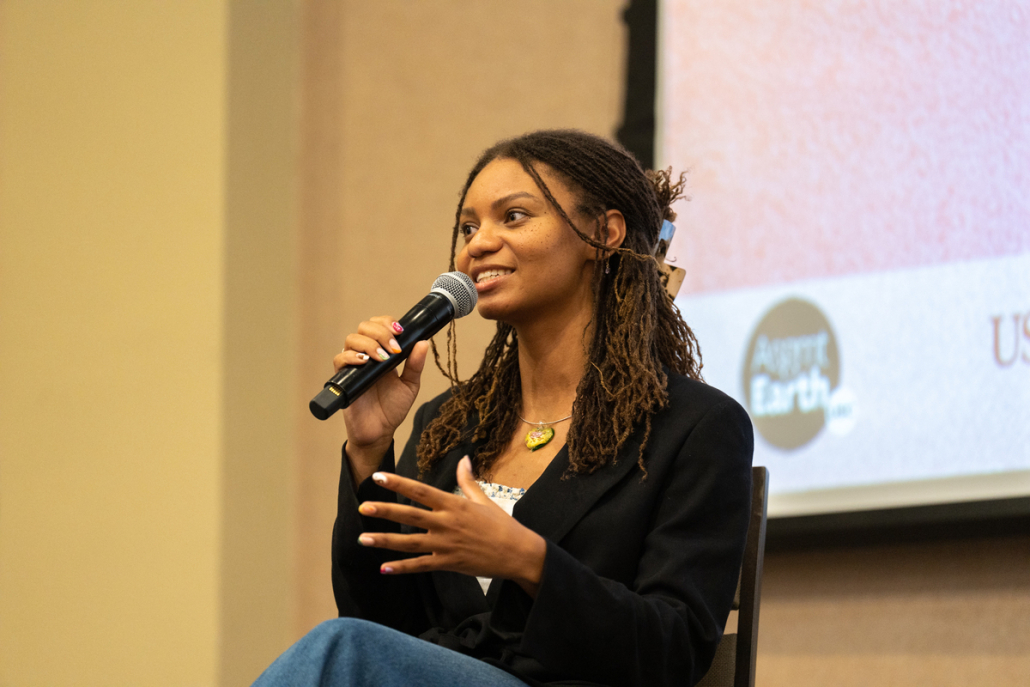Leah Thomas, the founder of Intersectional Environmentalist — a nonprofit platform advocating for social justice and environmentalism — shared her journey from academia to activism and answered questions with students at USC Hotel Grand Ballroom Thursday, as part of a series of Earth Month celebrations at the University.
The event was organized by the Wrigley Institute for Environmental Studies and sponsored by the Office of Diversity and Inclusion. The Environmental Student Assembly and Undergraduate Student Government Speakers Committee also contributed to organizing the event.
Thomas studies and advocates the impact of social inequality on environmental issues. She said factors such as race, gender and income interconnect with the environment, determining whether certain groups have access to a sustainable environment.
“Income and race also determine how many trees a neighborhood has, how many parks the neighborhood has, the air quality, the water quality and so on,” Thomas said.
Thomas’s journey to becoming an activist is rooted in her passion for nature and social justice. She studied biology as a freshman at Chapman University, following her parent’s suggestion; but her personal interest prevailed as she changed her major to environmental science and policy in her sophomore year.
As Thomas prepared to dive into environmental studies, Michael Brown, an 18-year-old African American, was killed by a police officer in Ferguson, Mo., a community close to where she grew up. The incident led Thomas to combine her studies with real-world advocacy.
“I felt really disconnected from what I was learning in my classroom,” Thomas said. “I want to see how I could combine the advocacy for social justice … while also learning about environmentalism.”
As Thomas continued to explore environmental justice, her experience at the Nicodemus National Historic Site in Kansas — the first community west of Mississippi built by formerly enslaved people — changed her life. By looking at the historical site of dugouts that the first group of people built bare handed, Thomas realized Black history is environmental history.
“It is of the soil our stories are here just waiting to be uncovered so it was such a healing experience for me,” Thomas said. “I started thinking about all of the trauma of environmental injustice.”
Thomas left her job at Patagonia in the summer of 2020, disappointed at what she said was many companies’ inadequate advocacy for Black, Brown and Indigenous lives. She then started spreading awareness of intersectional environmentalism on social media. People began to take notice, and large environmental organizations like the Sierra Club recognized the need to change their mission statement to include racial diversity.
